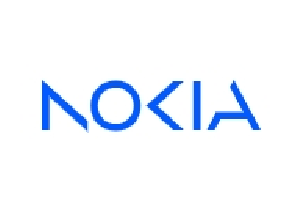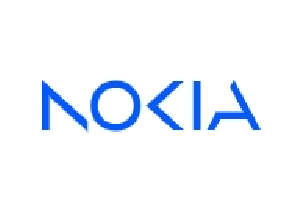T-Mobile Fiber could see 5M customers and $5B in revenue by 2030
T-Mobile's fiber business could serve about 5 million US customers and generate up to $5 billion in revenue during the next five years, according to the financial analysts at Evercore.
"Looking to 2030, we expect 14 million [fiber] passings ... and 4.8 million subscribers," the analysts wrote in a note to investors this week. "Assuming a $75 ARPU [average revenue per user] growing 4% year over year implies ~$5 billion of revenue in 2030."
The numbers are Evercore's first stab at evaluating the maturation of T-Mobile's fiber ambitions. They're based on the assumption that T-Mobile will close its deal to acquire fiber operator Metronet, following the recent closure of another deal with EQT for fiber operator Lumos. Evercore's projections do not assume that T-Mobile will make a play for another fiber operator like Lumen Technologies. (AT&T is rumored to be preparing a $5.5 billion bid for that company.)
Evercore's calculations also assume that T-Mobile will be able to compete successfully against other fiber and cable players, from Comcast to Verizon.
"While it hasn't shared subscriber targets, [T-Mobile] management has expressed confidence that it would see higher long-term market penetration than typical [fiber] overbuilders (e.g., ~35%) benefitting from its national brand and advertising, digital and retail distribution, ability to take advantage of the waiting list it has for FWA [fixed wireless access] in markets where demand outstrips supply," the Evercore analysts argued.
T-Mobile's fiber appetite
Overall, T-Mobile officials have said the company could reach up to 15 million locations with fiber by 2030, based on the company's current fiber deals.
The operator launched its first fiber offering in New York City in 2021 with Pilot Fiber. Since then, it has expanded its T-Mobile-branded fiber offerings to 32 markets across eight states via partnerships with the likes of Tillman FiberCo, SiFi Networks and Intrepid Networks.
More recently, T-Mobile acquired Lumos in a joint venture (JV) between the mobile network operator and private equity firm EQT. Lumos has around 475,000 fiber passings today, according to the Evercore analysts, and will expand to 3.5 million by 2028 in parts of the mid-Atlantic including North Carolina, Virginia and South Carolina.
T-Mobile is also looking to close its JV with KKR for Metronet. According to Evercore, Metronet counts 2 million fiber passings and will expand that to around 6.5 million by 2030 in more than a dozen US states.
T-Mobile is also pursuing federal fiber funding in Louisiana via partnerships with Swyft Fiber and REV, two local fiber operators there.
Digging into the estimates
Evercore assumes that T-Mobile Fiber will be able to capture 10% market share within six months of launch and 20% within a year. After two years, the analysts predict T-Mobile Fiber will command 40% penetration (meaning, 40% of the customers reached by its fiber connections will subscribe to those connections).
And how much will those connections cost?
"Pricing will evolve as T-Mobile acquires and operates Metronet and Lumos' subscribers along with the competitive dynamics across the broadband market. T-Mobile has a clear history of being a disruptor, so it could be more aggressive on pricing than we expect, resulting in downside to our ARPU and revenue estimates," the Evercore analysts warned.
They noted that T-Mobile Fiber in some Colorado markets today costs $55 per month for 500 Mbit/s connections. That's similar to local incumbents Lumen Technologies ($50 for 500 Mbit/s) and Comcast ($55 per month for 600 Mbit/s).
"For now, until there's greater color from management, we've assumed T-Mobile will see 25% EBITDA [earnings before interest, taxes, depreciation and amortization] margins on its Fiber revenue. This could be conservative over time," the Evercore analysts wrote.
They predicted overall EBITDA from T-Mobile Fiber of around $340 million in 2026, growing to $1.24 billion in 2030. And that, they said, would equate to free cash flow of $270 million in 2026, growing to $1 billion by 2030.
The convergence question
T-Mobile's CEO has questioned the benefits that can be derived from offering both wired and wireless services together – the proverbial telecom Holy Grail of "convergence."
"Some of our competitors talk about things like, we're investing in fiber because we have more share and more success where we have fiber," T-Mobile CEO Mike Sievert said late last year at an investor conference. "And then we went and looked at that and said, well, that's interesting. where our two principal competitors [AT&T and Verizon] have fiber, T-Mobile also has more success, where they have fiber."
However, an important insight into T-Mobile's convergence strategy emerged in the wake of its acquisition of Lumos.
"New and existing customers will enjoy VIP treatment through Magenta Status, which includes exclusive benefits like discounts on food, gas, entertainment and top brands, plus freebies every Tuesday in the T-Life app. All with T-Mobile's standard 'no exploding bills' pricing structure," T-Mobile said of its new Lumos customers.
"One app. All the things," T-Mobile proclaims of the T-Life app it launched roughly a year ago. The app is available to all T-Mobile smartphone customers – and now its new fiber customers.
"Get the latest exclusive perks from T-Mobile Tuesdays, and take advantage of all your Magenta Status benefits," T-Mobile said of its T-Life app. "You can also pay your bill, add a line to your account, and track orders straight from the app. And you can manage your account, configure your T-Mobile Home Internet gateway, and more. If you need help with anything, customer care is available at the tap of a button."
According to the Evercore analysts, convergence will provide a tailwind for T-Mobile.
"Despite management's tone around the benefits of convergence, we believe there will clearly be an opportunity to drive higher postpaid phone share across the growing number of households that ultimately end up taking T-Mobile fiber," wrote the Evercore analysts.
They predicted that T-Mobile's fiber operations would eventually help improve the operator's postpaid smartphone net customer additions by up to 650,000 per year, and that it will drive the operator's annual wireless service revenues up by $200 million to $350 million.





